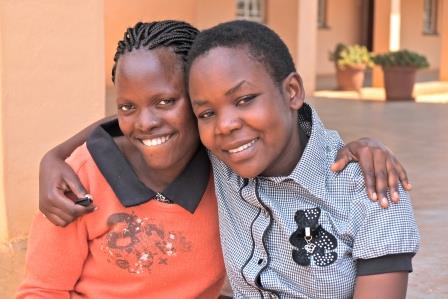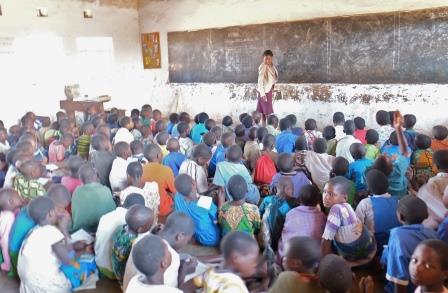The Ability of Trained Teachers to be Powerful Catalysts for Change
This article was originally published on the Global Campaign for Education's blog in November 2013.
Twitter has anywhere between 500 million overall users, more than half (62%) are estimated to be women. So (as an opinion piece in the New York Times asked) why are there no women on Twitter's board?

Now try typing "women need to" into your Google search engine, as promoted by a recent UN ad campaign. Then try "women should", "women cannot", and "women shouldn't".
As far as we have come, gender equality is still a very long way away in all corners of the world. And it isn't just developing countries that struggle - the United States ranks #23rd in the 2013 Global Gender Gap Index*.
But there are major strides being taken to empower women and the effects of these efforts are clear. Education is one area that has been proven to have tremendous impact on gender empowerment.
Educated girls have fewer children, are better able to care for their children, have better access to health care and information, practice safer sex, have better access to jobs, and are more likely to send their children to school.
But concentrating solely on educating girls will not result in empowered women unless teachers are themselves skilled and active promoters of gender equality. Alongside families and communities, teachers form the front-line of a child's development and in many cases, spend more time with children than anyone else, acting not only as educators but also as conduits of information and change. Teaching is an essential part of both a child's learning and her social, cultural and economic development. Teaching transmits and implants social values and nurtures a child's creativity, talent, and interests. It also provides children with the skills and knowledge to question and solve problems that they encounter in childhood and throughout their lives.
Trained teachers can address many of the issues that prevent girls from completing their education and that perpetuate cycles of gender inequality. Teachers can address gender-based violence in their classrooms by educating their students about its harmful effects and how to abstain and protect themselves from such violence and by working individually with students affected by violence. They can educate children about how to protect themselves from HIV/AIDS and ensure that girls have the knowledge and confidence to control their sexual choices. And they can encourage girls to stay in school and complete their education, thereforecontributing to their ultimate ability to earn more income and better support themselves.

And as more female teachers enter classrooms in many developing countries, more girls enroll in school. Seeing women in leadership positions can give girls and women more confidence to speak out, while interaction between men and large numbers of women - as equals - can encourage men to accept change and foster greater respect for women as their equals.
Female teachers can also raise the gender awareness and sensitivity of male teachers so that male teachers are better able to understand their own socially-constructed gender roles, attitudes and behaviors and to foster greater respect of women as equals. Male teachers who adopt these changes or attitudes are essential to demonstrate that girls and women are valued in the classroom and in society, and also to encourage greater understanding of male and female roles and gender identities.
We must believe in the ability of trained teachers to be powerful catalysts for change, both as individuals and for their students and their school's community members. By supporting the training of teachers - in particular female teachers - we can directly and indirectly reach millions of people around the world and work to bring sustainable change in the lives of women and girls while fighting poverty in the short and long-term.
Let's remember that we can change what pops up in a Google search.
Elizabeth Chiappa is the Partnership Representative at Planet Aid
Planet Aid supports teacher training in Angola, Mozambique, Malawi and the Democratic Republic of the Congo, where there is a dire need for qualified educators. The network of colleges we help support in sub-Saharan Africa is training approximately 5,000 - 6,000 qualified new teachers per year. The colleges are institutions that offer accredited programs in cooperation with the respective national ministries of education. Please also join us on Facebook and Twitter for updates on these and other initiatives.
*2013 Global Gender Gap Index is no longer available online. Click here to view the most recent (2017) Global Gender Gap Index, where the United States ranked 49.
Links updated by Planet Aid on March 19, 2018.
